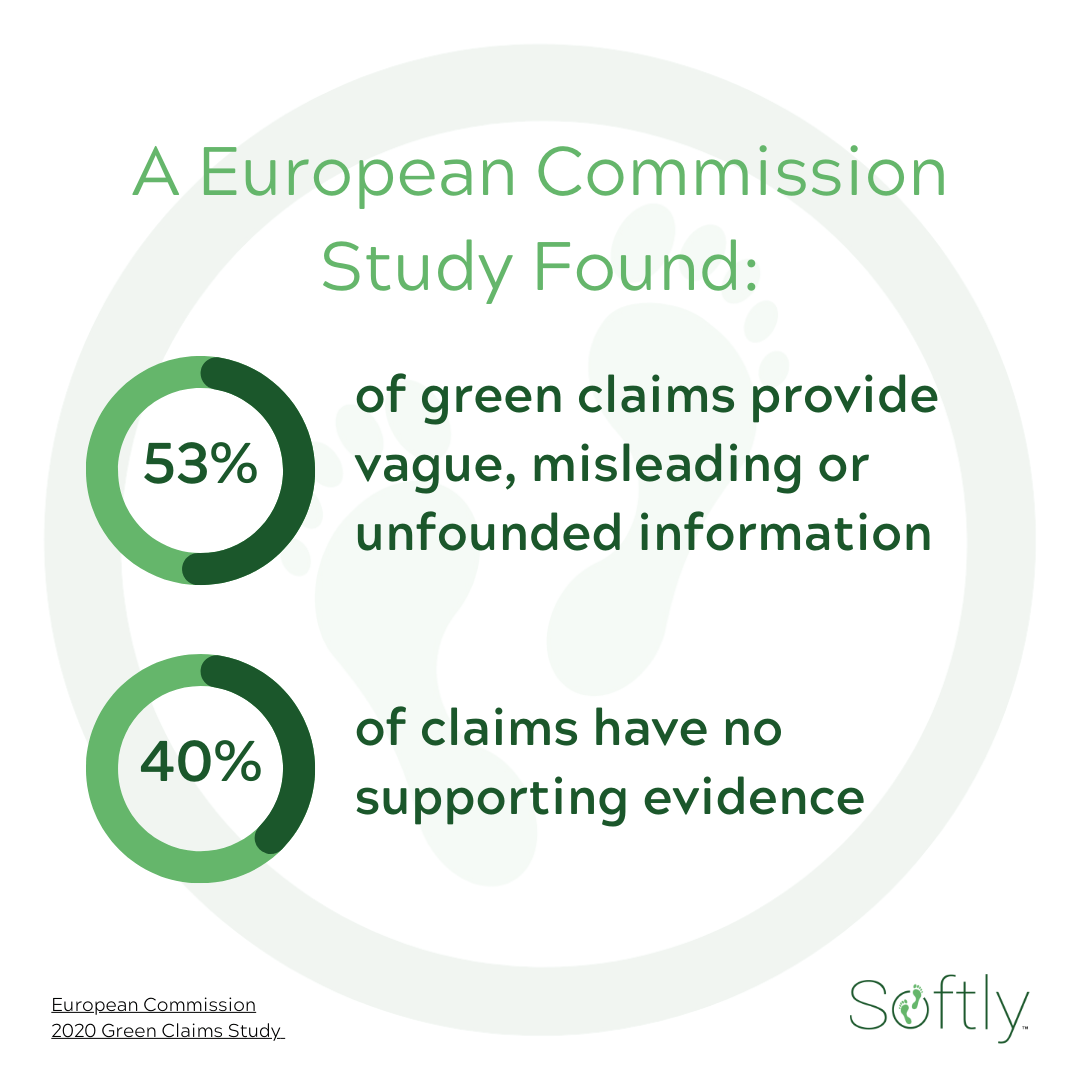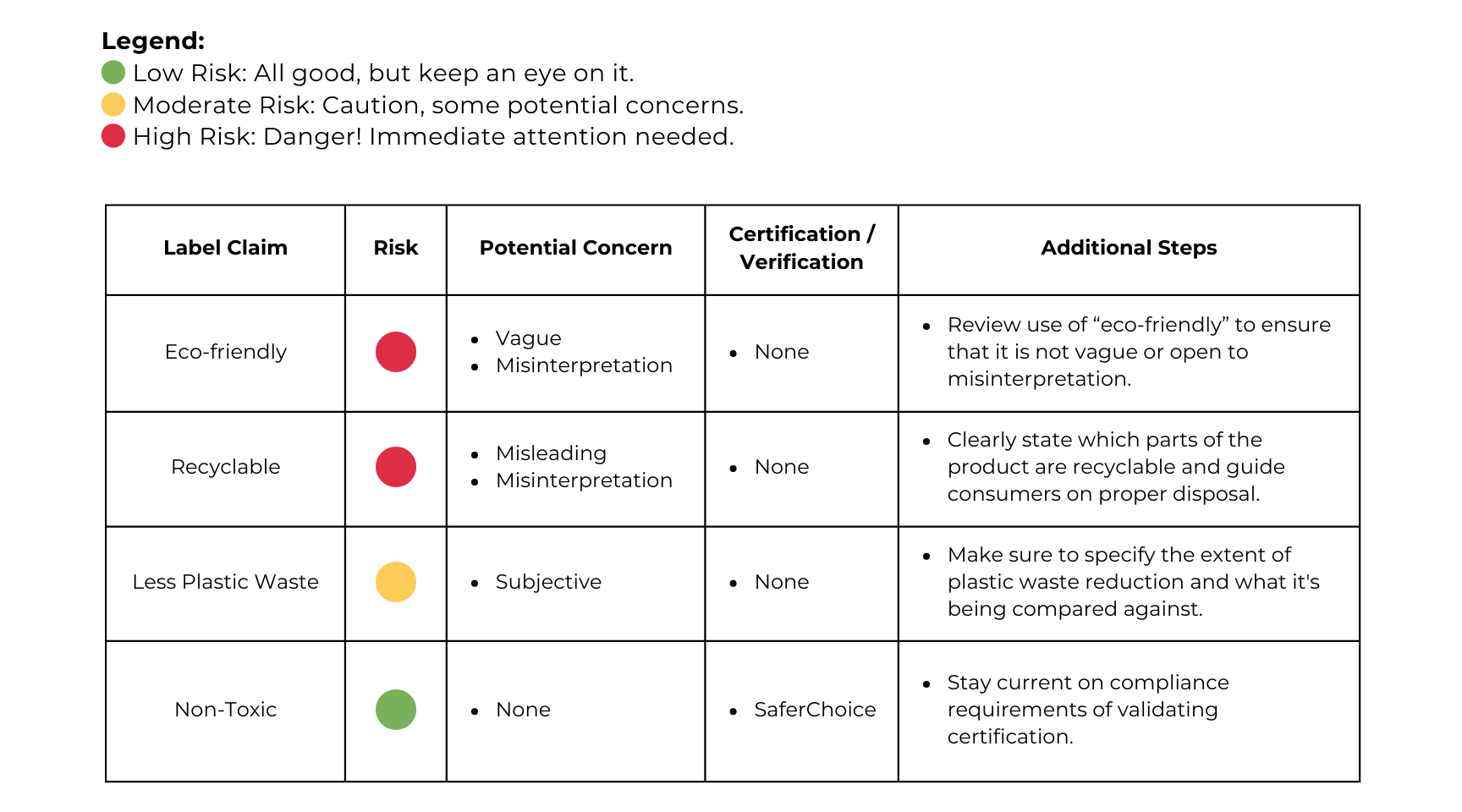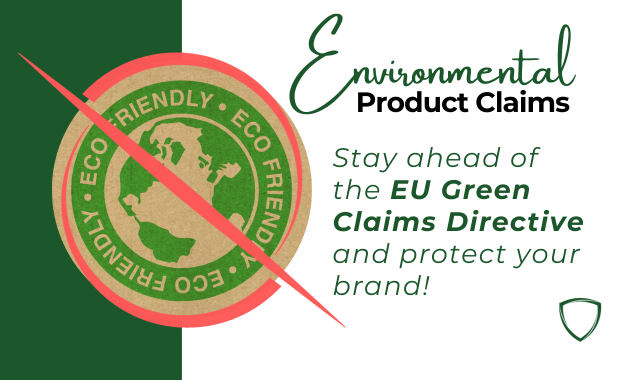How will the EU Green Marketing Laws affect your product advertising?
The landscape of sustainability claims has evolved, and with the advent of the EU Green Claims Directive, an anti-greenwashing law, the days of casual and unverified claims are now over. As regulators, watchdog groups, and consumers increasingly demand authenticity, legal scrutiny has intensified. It is imperative that brands craft a compelling sustainability narrative that is both clear and transparent. Recent studies have shown that a significant number of product claims do not meet compliance standards. This presents not only legal risks but also endangering the reputation of the brand and the retailer.
The EU Green Marketing Legislation in a Nutshell
The European Parliament gave its final greenlight to adopt the Green Claim Directives in January 2024. The objective is to prohibit deceptive advertising and improve the quality of product information available to consumers so they can make better-informed decisions. Companies will no longer be allowed to use unproven generic product claims such as “sustainable,” “environmentally friendly,” or “climate neutral,” without strict scientific evidence.
The next step is for the new legislation to be published in the Official Journal of the European Union and members will have 2 years to integrate the rules into law.
Environmental claims made by products sold in the EU are explicitly and directly impacted by this legislation. The European Parliament’s rapporteur, Biljana Borzan advises, “…we are clearing the chaos of environmental claims, which will now have to be substantiated…” The anti-greenwashing law follows a 2020 study by the European Commission, which showed that 53 percent of green claims provided vague, misleading or unfounded information. The same study also found that 40 percent of green claims had no supporting evidence at all.

Will the EU Green Claims Directive affect you?
When the EU issues a directive, each member country must legislate to achieve the directive’s goals. If you are selling your product within the EU, you will be required to abide by the new greenwashing laws set by each country. Keeping up with this constantly evolving landscape is a daunting task. Consider utilizing a service such as Softly Solutions to monitor your product claim compliance.
The Consequences of the EU Green Claims Directive. . .
Enforcement will be country-dependent, but fines could include up to 4% of total annual revenue. If your company is small (under ten employees or less than 2 million euros in revenue), these rules don’t apply. The changes won’t take place overnight— the EU Green Claims Directive will likely not be fully implemented until late 2024 or early 2025.
Even if not selling in the EU, it’s beneficial to heed this proposed legislation’s requirements. It is a first step in cracking down on unsubstantiated sustainability claims and banning greenwashing. Class action lawsuits over green claims are surging in the US, and an update to the US Green Guides is anticipated from the FTC soon.
The ABCs of Following the Proposed EU Greenwashing Laws

Adopt an Explicit Claim
The EU provisions will prohibit vague claims such as natural, climate neutral, and eco. Misleading and imprecise label claims must be replaced with specific, scientifically-backed claims certified by third parties. For example, “the packaging is biodegradable within a month in the case of home composting” is a more accurate claim than “biodegradable.” Similarly, instead of “environmentally friendly,” the claim could be “Packaging made of 30% recycled plastic”. Ensure the recycled material percentage is evidence-backed and clearly states the item’s portion made from recycled content.
The EU Green Claims Directive will also restrict claims already required by law or in everyday practice. For instance, labels shouldn’t tout “microbead free” as microbeads are already banned in rinse-off products. Under the EU directive, labeling water bottles as “recyclable” is disallowed as it is a common practice. There would need to be an additional sustainability claim beyond recyclability.

Back up your Green Claims with Scientific Research
Recognized scientific evidence must back any green claims. The scientific evidence needs to be verified by an independent third party, and claims based on academic and other publicly available studies will no longer be acceptable. Additionally, when you compare claims, you must use the same methodology, information, and data—don’t compare apples to oranges. When making green claims, it’s important to consider the potential negative effects as well as the positive impacts. For example, using biofuels to reduce carbon emissions may unexpectedly affect the environment, water quality, land use, and ecosystem processes. Brands must inform consumers about the harms related to the beneficial claim.

Certify Through a Third Party
Independent third-party certifications can be a trusted and transparent way to inform consumers of a company’s sustainability efforts. There are over 200 certifications in the EU and over 400 in the US market. The advantages of obtaining these certifications outweigh the disadvantages, including improved environmental standards and increased consumer confidence. The new directive accepts only EU-accredited third-party certifications, not self-certifications based on a company’s standards. Companies benefit from certifications approved for use in the EU because the certification process becomes easier and cheaper with fewer certifications.
If your company operates in the EU, you might find it beneficial to wait and see which certifications the EU will accredit. If you are not selling in the EU yet, third party certifications are a way to show transparency.

Display your Data
Under the EU Green Claims Directive, product labels will display certifications to assure consumers that claims are reliable. Environmental claims must also have scientific data to support a product’s environmental claims.
Labels will require QR codes or a website link for easy access to research supporting a product’s claim. This will provide an easy and convenient way for consumers to examine detailed information about a product’s environmental impact and the scientific data behind its claims. With this information readily available, consumers can make informed choices that align with their values.
Carbon Trust is ahead of the game and has already changed its label design to give consumers as much information as possible. Alongside its recognized logo, it shows a claim box with claim details, timeframe, standards, and websites for claim verification.

Emphasize your Product’s Life Cycle
Under the proposed green directive, environmental claims must be based on a life-cycle perspective.
To ensure accuracy and credibility, you must take all aspects, from production to disposal, into account. A significant claim should clearly indicate which part of the life cycle it relates to, such as recyclability. It should also provide consumers with information on how to achieve this aspect of the life cycle. Assessments and claims aid consumers in choosing environmentally friendly products, contributing to a sustainable future.


Forgo Reliance on Carbon Offsets
While the directive does not ban carbon offsets, it demands clear additional information about their impact and the way we communicate offsets to consumers. Claims such as “climate neutral” and “carbon neutral” can mislead consumers into thinking that a product does not have any climate impact at all. Credits for carbon obtained from external projects such as forestry or renewable energy sources are frequently lacking in transparency and accuracy. Companies will be required to report and distinguish the offsets of greenhouse gas emissions (such as tree planting) from the reductions of greenhouse gas emissions.
Benefits and Weaknesses of the EU Green Claims Directive
Although there is some criticism that the EU Green Claims Directive does not go far enough in regulating carbon offsets and may overlap with other legislation, the new greenwashing policy will make it easier for consumers to make green purchasing decisions. With this directive in place, consumers can now trust that green claims on products are legitimate, comparable, and verifiable across the EU. This policy will help level the playing field for businesses that are already making honest green claims and will encourage others to make environmentally friendly products by enhancing their competitiveness.
Next Steps
It is important to ensure that your product claims are reliable and instill trust in your customers. Reviewing the claims on your product label can help you identify any potential risks that may harm your reputation. To comply with the new laws, it is mandatory to have claims that are supported by scientific research and that are based on the complete life cycle of the product. To provide transparency and reliability, it is important to show your scientific data by using QR codes or website links on your labels, along with displaying your product’s third-party certifications.
Softly RISK ANALYSIS | Marketing Claims

At Softly, we have the expertise in evaluating and assessing these claims to help you make informed decisions. Our team of professionals can help you understand the requirements for product labeling and identify any potential issues with your current label. This can not only help you comply with legal requirements but also avoid any negative consequences that may arise from incorrect or misleading labeling.
At Softly, we are experts in evaluating and assessing these claims to help you make informed decisions. Our team of professionals can help you understand the requirements for product labeling and monitor your retail sites for non-compliance. Greenwashing lawsuits are skyrocketing. Softly helps brands and retailers proactively steer clear of litigation and safeguard their reputation. Stay ahead of changing regulations and avoid the negative consequences that arise from incorrect or misleading labeling with Softly.
Sources
- EU to ban greenwashing and improve consumer information on product durability | News | European Parliament
- The new EU law that’s looking to stamp out greenwashing
- EU’s Proposed Green Claims Directive: Covington experts explain – Watershed
- Green claims – European Commission
- The Green Claims Global Drive: Developments in the UK, US and EU
- Green Claims Directive
- Environmental outcomes of the US Renewable Fuel Standard | PNAS
- Softly Exploring the Pros and Cons of Product Sustainability Certifications
- What’s new with our product carbon footprint labels?
- EU says ‘not banning carbon offsets’ in greenwashing crackdown – EURACTIV.com
- EU to crack down on greenwashing with ‘proportionate’ penalties | Environment | The Guardian
- The new EU law that’s looking to stamp out greenwashing
